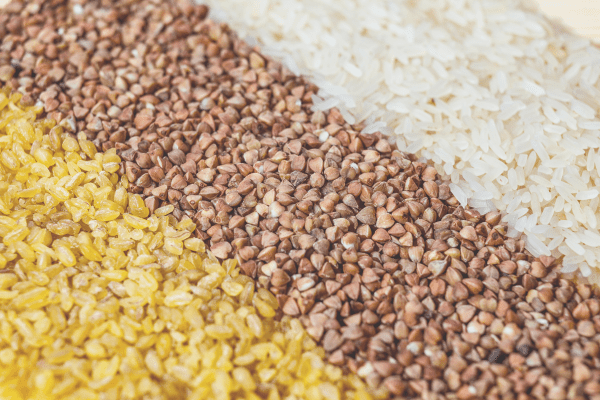For people with coeliac disease, a strict gluten-free diet is essential. Yet, some individuals continue to experience persistent symptoms and intestinal damage (despite adherence to the gluten-free diet), leaving them frustrated and searching for answers. Could the culprit be lurking in unexpected places – within our gluten-free foods themselves?
Recent research spearheaded by Professor. Michelle Colgrave from Edith Cowan University (ECU) and CSIRO and Dr. Angela Juhasz from ECU is exploring a fascinating area: ‘gluten mimics.’ These are ‘gluten-like’ protein sequences found in grains traditionally considered gluten-free. The question is, do these mimics pose a threat to some people with coeliac disease?
Unravelling the Mystery
While researchers have pinpointed potential protein sequences in some gluten-free grains, the story doesn’t end there. The crucial next step is to determine whether these sequences have clinical significance for patients; just because a grain could produce a problematic protein doesn’t mean it actually does, or that it causes a negative reaction in those with coeliac disease.
This is where the power of collaboration comes in. Scientists across various fields – genomics, protein chemistry, immunology, and clinical research – are joining forces to tackle this complex puzzle. Assoc. Prof Jason Tye-Din and his team at the Walter and Eliza Hall Institute (WEHI) are involved in the clinical arm of this study, assessing the in-person impacts of the protein sequences identified.
What’s Next?
The results of clinical studies examining the effects of potential gluten mimics are eagerly anticipated in the coming months. This work holds tremendous potential to shape our understanding of coeliac disease and could help guide support for those with ongoing symptoms and/or damage.
Meet the researchers – Michelle Colgrave & Angela Juhasz


Professor Michelle Colgrave
Deputy Director (Impact) at CSIRO Agriculture and Food and Professor of Food and Agriculture Proteomics at Edith Cowan University
Michelle is dedicated to safeguarding the health of those with coeliac disease by leveraging cutting-edge technology. Michelle’s expertise lies in detecting proteins in food, including both beneficial bioactive components and harmful allergens like gluten.
Michelle’s journey began in regional NSW and continued through an agricultural boarding school, where her studies centred on science and agriculture. She pursued a degree in analytical chemistry at university, driven by her forensic interests, ultimately becoming a “protein detective.”
Michelle’s research focuses on ensuring gluten-free foods are safe for consumption. She rigorously tests processing solutions to ensure they efficiently remove gluten without posing a threat to consumers, essential for individuals relying on a gluten-free diet for managing coeliac disease.


Dr. Angela Juhasz
Senior lecturer at Edith Cowan University
Dr, Angela Juhasz, with a background in food chemistry and experience in wheat and gluten proteins, contributes invaluable insights to the research. Her multidisciplinary expertise spans proteomics, molecular biology, genomics, and bioinformatics, making her an integral part of the team.
Their collaborative efforts aim to understand the harmful effects of gluten proteins on coeliac disease patients. By delving into comparative genome bioinformatics, they seek to uncover the origins and functions of CD-trigger protein regions, facilitating the discovery of safe alternatives to gluten.
Their international collaborations focus on genomic aspects of gluten and gluten-like proteins in cereals, enriching their understanding of this complex disease. Angela emphasises the importance of interdisciplinary collaboration, highlighting the need to bridge the gap between plant science, analytical chemistry, and medical expertise to advance coeliac disease research.






